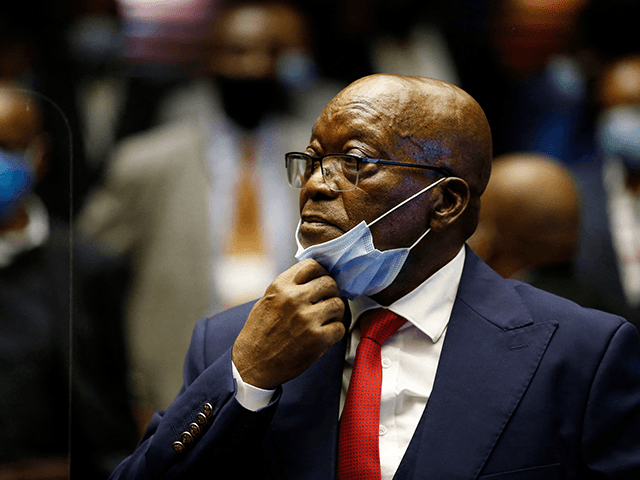South Africa’s Constitutional Court on Tuesday sentenced ex-South African President Jacob Zuma to 15 months in prison on contempt charges after he defied a court order to appear before a corruption inquiry examining allegations of graft during his tenure as president from 2009 to 2018.
“Zuma will now have five days to present himself to police in either Nkandla, his home village, or Johannesburg, before he will be taken to a correctional centre,” South Africa’s News24 online news site reported on June 29. Zuma faces arrest if he fails to report to a police station within five days to begin serving his detention.
“The former president testified only once at the inquiry into what has become known as ‘state capture’ but then refused to appear subsequently,” the BBC reported Tuesday. In response, the Constitutional Court of South Africa in January ordered Zuma “to appear before the corruption inquiry or risk being held in contempt,” according to the New York Times.
“Mr. Zuma brazenly defied the court. Not only did he fail to show up at the inquiry, but he also ignored the high court’s contempt proceedings, declining to so much as mount a defense,” the Times recalled on June 29. “Instead, he wrote a 21-page letter to the chief justice, blasting the court as biased against him and accusing it of engaging in political chicanery.”
“Mr Zuma refused to come to the court to explain his actions,” Acting Chief Justice Sisi Khampepe said on Tuesday while delivering the high court’s majority ruling.
“[Zuma] elected instead to make provocative, unmeritorious and vituperative statements that constituted a calculated effort to impugn the integrity of the judiciary,” she said.
“I am left with no option but to commit Mr Zuma to imprisonment, with the hope that doing so sends an unequivocal message… the rule of law and the administration of justice prevails,” Chief Justice Khampepe concluded.
Zuma was not present at Tuesday’s court hearing in Johannesburg. South Africa’s leftist ruling party, the African National Congress (A.N.C.), ousted Zuma from the country’s presidency in 2018 after he lost an internal power struggle against his then-deputy and fellow A.N.C. member Cyril Ramaphosa, who currently serves as South Africa’s president.
South Africans have accused the A.N.C. of facilitating widespread corruption, including the pillaging of public enterprises by government officials such as Zuma and Ramaphosa, for years. The A.N.C.’s misuse of public funds over the past few decades has caused ordinary citizens to suffer frequent water shortages and electricity outages, among other problems.
Zuma currently faces additional legal troubles in connection with his decades-long political career within the A.N.C.
“He is being prosecuted on charges of racketeering, corruption, fraud and money laundering after being accused of taking bribes from a French arms manufacturer when he was deputy president in 1999,” the Times noted on June 29. “That trial was set to start earlier this year, but the case has been delayed repeatedly.”
“Most recently, Mr. Zuma’s legal team has sought to get the lead prosecutor removed, alleging that he was biased. The case has been postponed until July,” the newspaper added.

COMMENTS
Please let us know if you're having issues with commenting.